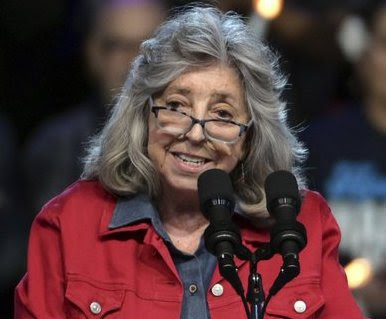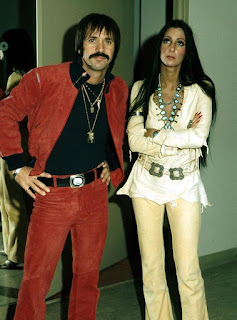Marijuana Moment reports that Reps. Dina Titus
(D-NV) and Ilhan Omar (D-MN) will be co-chairing the Congressional Cannabis Caucus in the coming legislative session. The powerhouse pair of women will replace outgoing co-chairs Reps. Earl Blumenauer (D-OR) and
Barbara Lee (D-CA), both of whom are no longer in office.
Titus
tweeted the news, saying, "
I look forward to continuing to support the growth of the regulated cannabis industry."
The Congresswoman has been a strong supporter of cannabis since at least 2016, when she voted in favor of the Nevada state ballot initiative legalizing adult-use marijuana, and signed a letter to Pres. Obama asking him to remove barriers to
medical marijuana research.
In 2023, she sponsored a bill to provide $150 million in marijuana research funding for universities
over five years, while allowing those institutions to obtain cannabis
for studies through partnerships with state regulatory agencies and law
enforcement. She also introduced a bipartisan amendment to a spending bill
that would have provided protections for military veterans who use
medical marijuana in legal states, as well as doctors at the U.S.
Department of Veterans Affairs (VA) who issue recommendations to allow
participation in such programs.
In 2017, Titus won a Top Tweet Tokey award for her tweet, "At the federal and state level, it is time we puff, puff pass those bills to protect marijuana businesses. #Happy420." After the Biden administration initiated the cannabis rescheduling process last year, she tweeted that it “made no sense that marijuana was classified the same as heroin and LSD,”
adding that reclassifying the drug “will help researchers study the
medical benefits of cannabis and legal businesses combat the unregulated
black market.”
In 2024, Titus's team toured two Nevada cannabis businesses and she tweeted her support for them, and for the hemp industry. Her district includes the Las Vegas strip, which is fast opening cannabis lounges.
The 74-year-old lawmaker has represented the First
Congressional District of Nevada for more than a decade, and served as State
Senate Minority Leader from 1993 to 2009. She has been
rated one of the most effective Democratic members of the House of
Representatives by the Center for Effective Lawmaking. She's fought for affordable housing "to be owned by people, not corporations," and has introduced
legislation to raise the minimum wage.
A graduate of the College of William and Mary, she holds a master's degree
from the University of Georgia, and earned her doctorate at Florida
State University. For over 40 years, she has been married to UNLV Professor Thomas C. Wright, the author of a number of
award-winning books, most notably on political exile and human rights in Latin America.
Titus's co-chair Rep. Ilhan Omar represents Minnesota's 5
th Congressional District, which includes Minneapolis and surrounding suburbs. She was sworn into office in January 2019, making her
the first African refugee to become a Member of Congress, the first
woman of color to represent Minnesota, and one of the first two
Muslim-American women elected to Congress.
Upon taking office, Omar made the case that marijuana legalization must happen at the federal level so that individual states aren’t able to continue to disproportionately enforce prohibition against communities of color.
Omar—who cosponsored legislation to deschedule cannabis and penalize
states that carry out prohibition in a discriminatory way, as well as a
separate bill that would mandate the U.S. Department of Veterans Affairs
(VA) study the therapeutic potential of cannabis for veterans—said the
country is now having “the broader conversation after legalization.”
The congresswoman was among 12 House members who
introduced a resolution condemning police brutality in light of law
enforcement killings of two Black individuals that have galvanized mass
protests. The measure specifically noted the racial injustices of the war on drugs.
In December 2024, both Omar and Titus joined 12 other House Democrats who urged President Joe Biden to significantly expand his marijuana pardons and issue updated guidance to formally deprioritize federal cannabis prosecutions before his administration comes to an end.
“Legalize marijuana nationwide. Expunge records for cannabis-related
offenses,” Omar tweeted in September 2024. “Let’s end the failed War on
Drugs once and for all.”
The Deputy Chair of the Congressional Progressive Caucus, Omar was born in Somalia. Her family fled the country's civil war
when she was eight and spent four years in a refugee camp in
Kenya before coming to the United States in the 1990s. Before running for office, she
worked as a community educator at the University of Minnesota, was a
Policy Fellow at the Humphrey School of Public Affairs and served as a
Senior Policy Aide for the Minneapolis City Council.
Republican members David Joyce (R‑OH) and Brian Mast (R‑FL) are also co-chairs on the bi-partisan Cannabis Caucus, which was founded by Blumenauer and former Rep. Dana Rohrabacher (R-CA) in 2017. Caucus co-founder Don Young (R‑AK) died in office in March 2022 and former Jared Polis (D-CO) successfully ran for Governor of Colorado in 2018.
In December of 2019, the Caucus passed the Marijuana Opportunity, Reinvestment, and
Expungement Act in the House of Representatives, marking the
first time in US history that a chamber of Congress has ever passed a
bill to end the federal criminalization of marijuana. Tell Your Representative: Join the Cannabis Caucus.



















_-_2017.jpg)











